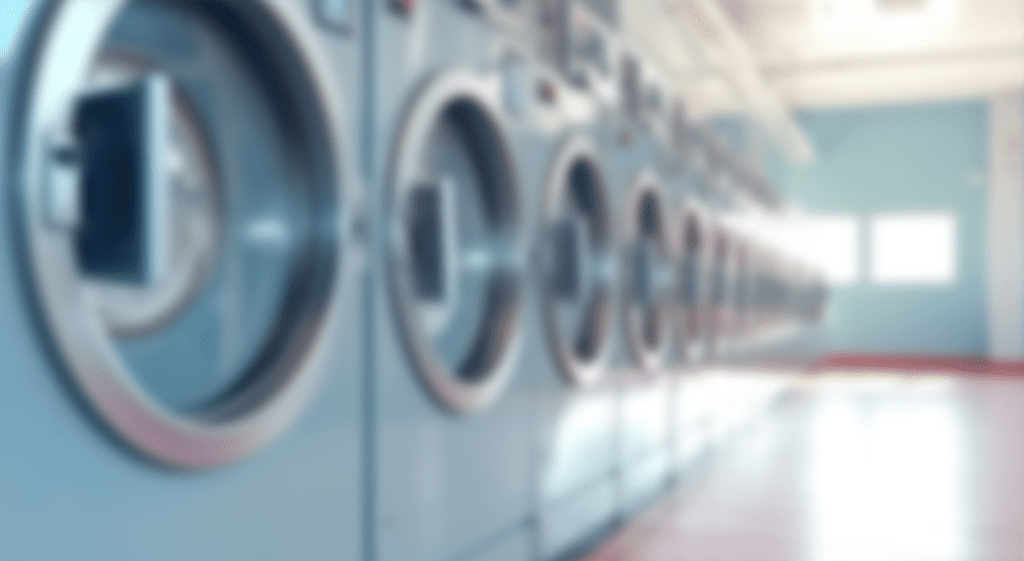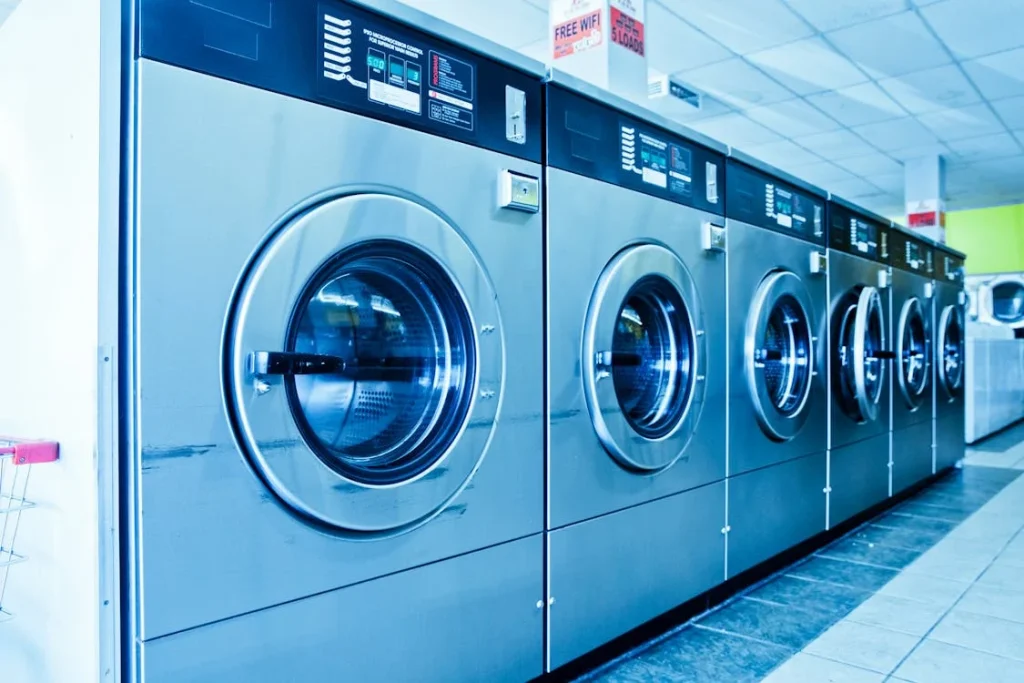Industrial laundry equipment is the backbone of large-scale laundry operations. Whether you’re running a hospital, hotel, or commercial laundry service, the right washing machines and dryers ensure efficiency, cost savings, and high-quality results. But how do these Industrial Washing Machines and Dryer machines work together? Understanding their synergy is key to maximizing productivity.
Table of Contents
- Why Industrial Laundry Solutions Matter
- Key Differences Between Industrial and Commercial Machines
- Understanding Industrial Washing Machines
- Understanding Industrial Dryers
- How Industrial Washers and Dryers Complement Each Other
- Choosing the Right Industrial Washing Machine and Dryer
- Future Trends in Industrial Laundry Equipment
- Conclusion & Call to Action
- FAQs
- 1. What is the difference between commercial and industrial laundry machines?
- 2. How often should industrial washers and dryers be serviced?
- 3. Can industrial dryers reduce energy consumption?
- 4. Are there eco-friendly industrial laundry solutions?
- 5. How do I choose the right industrial washing machine size?
Why Industrial Laundry Solutions Matter
Imagine trying to wash thousands of pounds of laundry daily with household machines—inefficient, right? Industrial washers and dryers are designed to handle large volumes, reduce water and energy waste, and deliver consistent cleaning. Businesses depend on them for hygiene, speed, and cost-effectiveness.

Key Differences Between Industrial and Commercial Machines
While commercial washers and dryers serve businesses like laundromats, industrial machines are built for high-volume operations. They offer greater capacity, durability, and efficiency. With features like programmable controls and water recycling, industrial laundry systems optimize every load.
Understanding Industrial Washing Machines
Industrial washing machines do more than clean clothes; they remove deep-seated stains, kill bacteria, and extend fabric life. Their advanced mechanics ensure maximum efficiency and reliability in demanding environments.
How Industrial Washing Machines Operate
These machines work by agitating laundry with a powerful mix of water, detergent, and mechanical action. Unlike domestic models, they utilize high-speed extraction to remove excess water, reducing drying time. Many come with programmable settings tailored to fabric types and soil levels.
Types of Industrial Washing Machines
Washer-Extractors
These freestanding machines wash and extract water at high speeds, cutting down drying time. They’re versatile, making them ideal for hotels, hospitals, and uniform cleaning facilities.
Tunnel Washers
Designed for continuous washing, tunnel washers move laundry through different compartments for washing, rinsing, and extracting. They’re perfect for large-scale operations that require efficiency and minimal manual handling.
Barrier Washers
Common in healthcare and cleanroom environments, barrier washers separate clean and dirty laundry areas to prevent cross-contamination, ensuring strict hygiene standards.
Features to Look for in an Industrial Washer
- High G-force extraction reduces drying time.
- Programmable controls optimize cycles for different fabrics.
- Eco-friendly options minimize water and energy use.
- Heavy-duty construction ensures longevity and reliability.
Understanding Industrial Dryers
Once washing is complete, drying becomes the next crucial step. Industrial dryers work in tandem with washing machines to deliver crisp, hygienic, and ready-to-use textiles.
How Industrial Dryers Work
Industrial dryers use powerful airflow, heat, and tumbling motion to remove moisture. They often include moisture-sensing technology to prevent over-drying, protecting fabric integrity while saving energy.
Types of Industrial Dryers
Tumble Dryers
These high-capacity machines operate like standard dryers but on a much larger scale. They are perfect for businesses that need fast and efficient drying.
Continuous Batch Dryers
Designed for high-output operations, these dryers process laundry in a continuous cycle, ensuring no downtime between loads.
Heat Pump Dryers
A more energy-efficient option, heat pump dryers recycle hot air to reduce energy consumption. They are ideal for businesses looking to cut operational costs.
Features to Look for in an Industrial Dryer
- Large drum capacity for handling bulk loads.
- Moisture sensors to prevent overdrying and save energy.
- High-efficiency heating systems for reduced operating costs.
- Fast drying times to improve workflow.
How Industrial Washers and Dryers Complement Each Other
A well-paired washing machine and dryer ensure a seamless laundry operation. Here’s how they work together to optimize efficiency.
Enhancing Laundry Workflow Efficiency
When washers and dryers are designed to complement each other, laundry moves seamlessly from one stage to the next. This reduces bottlenecks, ensuring a continuous flow of clean linens and garments.
Reducing Energy and Water Consumption
Industrial washers with high-speed extraction reduce moisture retention, cutting drying time and energy usage. Meanwhile, modern dryers recycle heat to further conserve energy, reducing utility costs.
Improving Fabric Longevity
Overwashing and overdrying wear out fabrics quickly. When washers and dryers are programmed to handle specific fabric types, they minimize damage, keeping linens and garments in top condition.
Ensuring Hygiene and Compliance Standards
Industries like healthcare and hospitality require strict hygiene standards. Industrial washers and dryers with programmable sanitation cycles ensure compliance with safety regulations and prevent cross-contamination.
Choosing the Right Industrial Washing Machine and Dryer
Not all machines are built the same. Picking the right combination depends on business needs, available space, and operational goals.
Factors to Consider When Investing
- Capacity – Ensure the machine meets your daily laundry volume.
- Efficiency – Look for energy and water-saving features.
- Automation – Machines with programmable settings reduce manual intervention.
- Durability – Heavy-duty materials ensure long-term reliability.
Maintenance and Longevity of Equipment
Regular maintenance, such as cleaning lint filters, descaling washers, and inspecting drum bearings, extends the lifespan of your machines. Preventative maintenance reduces breakdowns and costly repairs.
Cost vs. Efficiency Analysis
While upfront costs for industrial washers and dryers can be high, their efficiency saves money in the long run. Lower utility bills, reduced labor costs, and extended fabric life make them a worthwhile investment.
Future Trends in Industrial Laundry Equipment
Technology is shaping the future of laundry operations. Here’s what’s coming next.
Smart Technology Integration
Modern industrial laundry machines come with IoT-enabled monitoring systems, allowing businesses to track performance, energy consumption, and maintenance needs remotely.
Sustainability in Industrial Laundry
As sustainability becomes a priority, manufacturers are introducing eco-friendly models with reduced water and energy usage. Heat recovery systems and biodegradable detergents are also on the rise.
Conclusion & Call to Action
Industrial washing machines and dryers are the perfect duo for efficient and cost-effective laundry operations. Investing in the right equipment ensures smoother workflows, better fabric care, and reduced operational costs.
Ready to upgrade your laundry setup? Contact us today to find the best industrial washing machines and dryers for your business.
FAQs
1. What is the difference between commercial and industrial laundry machines?
Industrial machines are designed for large-scale operations, offering higher capacity, durability, and efficiency compared to commercial units.
2. How often should industrial washers and dryers be serviced?
Routine maintenance is recommended every few months, with professional servicing at least once a year to prevent breakdowns.
3. Can industrial dryers reduce energy consumption?
Yes, modern industrial dryers come with energy-efficient features like heat recovery systems and moisture sensors to minimize energy use.
4. Are there eco-friendly industrial laundry solutions?
Yes, many industrial washers and dryers use less water and energy, and some even feature heat pump technology for added efficiency.
5. How do I choose the right industrial washing machine size?
Consider your daily laundry volume, load size, and operational needs. A laundry equipment provider can help assess your requirements.
Here are some other articles that we think might interest you:
Benefits of Industrial Washer Dryers in Healthcare


